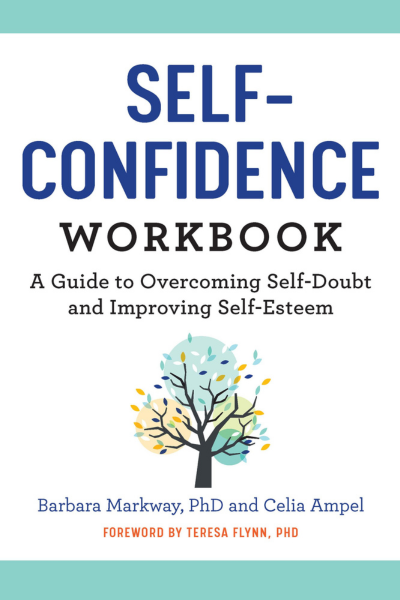Content Summary
Impostor Syndrome, also known as Impostor Phenomenon or Fraud Syndrome, is a psychological pattern characterized by persistent self-doubt and a sense of intellectual fraudulence despite evidence of accomplishments and success.
Individuals experiencing impostor syndrome often believe that they are not as competent, skilled, or intelligent as others perceive them to be. Instead of acknowledging their achievements as a result of their abilities and hard work, they attribute their success to luck, timing, or other external factors.
This phenomenon was first introduced in 1978 by psychologists Pauline Clance and Suzanne Imes when they noticed this thinking pattern among high-achieving women. However, over time, it became evident that people of all genders and backgrounds could experience impostor syndrome.
Common Characteristics of Impostor Syndrome
Self-Doubt: Individuals with impostor syndrome frequently doubt their capabilities and fear that they will be exposed as incompetent.
Attributing Success to External Factors: They tend to attribute their achievements to external factors like luck or favorable circumstances rather than their skills or efforts.
Discounting Achievements: Even in the face of success, they may downplay their accomplishments, believing that they didn't deserve the recognition.
Fear of Failure and Rejection: They often avoid new challenges or opportunities for fear of failing and being discovered as a fraud.
Comparing Themselves to Others: They constantly compare themselves to others, feeling inadequate when they perceive others as more accomplished or talented.
Overworking and Perfectionism: To compensate for their perceived inadequacy, they may overwork and strive for perfection in everything they do.


Causes of Impostor Syndrome
The exact causes of impostor syndrome can vary from person to person. Some common contributing factors include:
Early Influences: Negative early experiences or messages from family, teachers, or peers may contribute to feelings of inadequacy later in life.
Perfectionism: High expectations and a fear of making mistakes can fuel impostor feelings, as individuals constantly strive for unattainable standards.
Stereotype Threat: Being part of a marginalized or underrepresented group in certain fields can intensify feelings of being an impostor.
Personality Traits: Certain personality traits, such as high sensitivity to criticism, can make individuals more susceptible to impostor syndrome.

Overcoming Impostor Syndrome
Overcoming impostor syndrome is a gradual process that involves self-awareness and self-compassion. Here are some strategies to help manage and alleviate impostor feelings:
Recognize and Acknowledge: Acknowledge that you are experiencing impostor syndrome and that these feelings are common among high-achievers.
Talk About It: Share your feelings with friends, family, or mentors. Often, speaking openly about your doubts can provide relief and reassurance.
Internalize Successes: Take time to recognize and internalize your achievements. Keep a record of positive feedback and compliments to remind yourself of your accomplishments.
Challenge Negative Thoughts: Challenge negative thoughts and self-criticism by focusing on your skills, experiences, and qualifications.
Realize Everyone Makes Mistakes: Understand that making mistakes is a natural part of learning and growth. Embrace the learning opportunities that come with failure.
Seek Support and Professional Help: Consider seeking support from a therapist or counselor who can help you work through your feelings and develop coping strategies.
What is Imposter Syndrome and How to Overcome it?
Most FAQs About Imposter Syndrome
How Does Imposter Syndrome Feel Like?
Experiencing impostor syndrome can be a deeply distressing and disconcerting emotional state. The feelings associated with impostor syndrome can vary from person to person, but some common emotions and thoughts individuals may experience include:
Inadequacy: Impostor syndrome often generates a sense of inadequacy, making individuals feel like they are not skilled or competent enough for the tasks they are expected to perform.
Self-Doubt: There is a persistent doubt about one's abilities and accomplishments, leading individuals to question whether they truly deserve the success they have achieved.
Fear of Exposure: Those with impostor syndrome often fear that others will discover they are not as capable as they appear to be, leading to feelings of being an intellectual fraud.
Anxiety and Stress: The constant fear of being exposed can lead to heightened levels of anxiety and stress, especially in professional or academic settings.
Discounting Success: Despite achievements and recognition, individuals with impostor syndrome may downplay their successes, attributing them to luck or external factors rather than their skills and efforts.
Perfectionism: A drive for perfectionism may arise as a way to compensate for perceived inadequacy, leading to unrealistic standards and fear of making mistakes.
Comparisons: Impostor syndrome often involves comparing oneself to others and feeling inferior when measuring up to the perceived success of peers or colleagues.
Difficulty Accepting Praise: Individuals with impostor syndrome may struggle to accept compliments or positive feedback, believing that they are undeserving of praise.
Self-Sabotage: The fear of failure and feelings of being an impostor may lead some individuals to unconsciously self-sabotage their opportunities for success.
Isolation: Impostor syndrome can lead to feelings of isolation and loneliness, as individuals may avoid seeking support or recognition from others.
These feelings can create a cycle of self-doubt and anxiety, making it challenging for individuals to internalize their achievements and build self-confidence.
It's important to remember that experiencing impostor syndrome does not reflect one's actual abilities or competence. It is a psychological phenomenon that affects people across various fields, and acknowledging these feelings is the first step towards managing and overcoming impostor syndrome.
Seeking support from friends, family, mentors, or professional counseling can be beneficial in navigating these emotions and developing a more positive self-perception.
Are Women More Exposed to Imposter Syndrome Than Men?
Historically, Impostor Syndrome was initially associated with high-achieving women, as the concept was introduced by psychologists Pauline Clance and Suzanne Imes in the 1970s while studying successful women in academia.
As a result, there was an early perception that women were more prone to experiencing impostor feelings. However, over time, research has shown that both men and women can experience impostor syndrome, and it is not limited to any specific gender.
Studies have indicated that the prevalence of impostor syndrome is relatively similar between men and women. Both genders can experience self-doubt and feelings of intellectual fraudulence, particularly in situations where they perceive high expectations or challenges.
While the manifestation of impostor syndrome may differ in some aspects due to social and cultural factors, it is not inherently more prevalent in one gender over the other.
It is essential to recognize that impostor syndrome is a psychological phenomenon that can affect anyone, regardless of gender. The underlying causes and triggers may vary, but the core experience of self-doubt and fear of being exposed as an impostor are common to both men and women.
The perception that women are more exposed to impostor syndrome might have been influenced by societal expectations and historical gender roles. For instance, women in male-dominated fields or leadership positions might face additional pressures, leading to feelings of inadequacy.
However, it is crucial to avoid generalizations and acknowledge that impostor syndrome is a complex and multifaceted issue that affects individuals from diverse backgrounds and genders.
Is Imposter Syndrome the Same as Insecurity?
While Impostor Syndrome and insecurity share some similarities, they are distinct psychological concepts.
Impostor Syndrome: Impostor Syndrome is a specific pattern of thinking in which individuals doubt their abilities, feel like fraud despite evidence of accomplishments, and fear being exposed as incompetent. People experiencing impostor syndrome often attribute their success to external factors like luck and downplay their skills and efforts.
They have a persistent fear of being discovered as an intellectual impostor, even when they have achieved significant success. Impostor Syndrome is more about a self-perception issue related to competence and worthiness.
Insecurity: Insecurity is a broader term that refers to a lack of confidence or self-doubt in various aspects of life. It can manifest in different forms, such as insecurity about appearance, social interactions, relationships, or abilities.
Insecurity can stem from various sources, including past experiences, negative feedback, or comparisons to others. Unlike Impostor Syndrome, insecurity is not solely focused on professional achievements but can affect multiple areas of an individual's life.
Key Differences:
- Scope of Impact: Impostor Syndrome primarily revolves around doubts and feelings of inadequacy related to achievements and success in specific areas, such as academics or career. Insecurity, on the other hand, can encompass a broader range of self-doubt and uncertainty in different aspects of life.
- Causes: Impostor Syndrome is often linked to high achievers and is related to specific accomplishments and recognition. Insecurity can be caused by various factors, including past experiences, external judgments, or unresolved personal issues.
- Focus of Self-Perception: Impostor Syndrome is centered on the belief of being a fraud despite evidence of success. Insecurity may involve negative self-perceptions in various domains, with individuals feeling uncertain or inadequate about themselves.
- External Validation: People with Impostor Syndrome may seek external validation to confirm their competence, while individuals dealing with insecurity may seek validation in multiple aspects of their lives.
It's important to note that these two concepts can sometimes intersect, as feelings of insecurity in one area can contribute to impostor feelings in another. Both Impostor Syndrome and insecurity can have a significant impact on an individual's self-esteem and overall well-being.
Recognizing and addressing these feelings can lead to personal growth and improved self-confidence. Seeking support from friends, family, or professionals can be beneficial in navigating these emotional challenges.
Is Imposter Syndrome Cause by Trauma?
Impostor syndrome is not directly caused by trauma; rather, it is primarily rooted in feelings of self-doubt, fear of inadequacy, and a sense of being a fraud despite evidence of achievements. While trauma can contribute to the development of impostor syndrome in some cases, it is not the sole cause.
The origins of impostor syndrome are multifactorial and can stem from various sources, including:
Personality Traits: Certain personality traits, such as perfectionism, high sensitivity to criticism, and a tendency to set excessively high standards, may make individuals more susceptible to experiencing impostor feelings.
Family Dynamics and Upbringing: Negative messages received during childhood, such as constant criticism or unrealistic expectations, can influence an individual's self-perception and contribute to feelings of inadequacy later in life.
Cultural and Societal Factors: Societal pressure, gender expectations, or racial stereotypes can also play a role in the development of impostor syndrome.
Academic or Professional Environment: Highly competitive or high-achieving environments, such as academia or certain industries, can create an atmosphere of self-comparison and self-doubt.
While trauma itself may not be a direct cause of impostor syndrome, certain traumatic experiences or past events can indirectly influence an individual's self-perception and contribute to impostor feelings.
For example:
Critical Incidents: Experiencing failure, criticism, or negative feedback in a traumatic way can create lasting self-doubt and fear of similar situations in the future.
Rejection or Bullying: Past experiences of rejection or bullying can lead to feelings of worthlessness and the belief that one is not deserving of success.
Stereotype Threat: Traumatic experiences related to being part of a marginalized group in a specific context may intensify feelings of being an impostor due to societal expectations and biases.
It's important to remember that each individual's experience with impostor syndrome is unique, and the contributing factors can vary.
Addressing impostor syndrome may involve recognizing and challenging negative thought patterns, seeking support from others, and building self-compassion and self-confidence.
In cases where trauma plays a significant role in an individual's feelings of inadequacy, professional counseling or therapy can be beneficial in addressing the underlying emotional challenges.
What are the Positive Sides of Imposter Syndrome?
While Impostor Syndrome is primarily associated with negative feelings of self-doubt and fear of being exposed as a fraud, it also has some potential positive aspects or unintended benefits:
Drive for Excellence: Individuals with Impostor Syndrome often have a strong desire to excel and perform at their best. They push themselves to work harder and strive for excellence to overcome their perceived inadequacies.
Humility and Openness to Feedback: Impostor feelings can make individuals more open to receiving constructive feedback. They are receptive to learning and improving because they recognize that they have room for growth.
Empathy and Compassion: Having experienced feelings of inadequacy themselves, people with Impostor Syndrome may be more empathetic and understanding towards others facing similar challenges.
Continuous Learning: The fear of being discovered as a fraud can drive individuals to seek knowledge, acquire new skills, and invest in personal and professional development.
Avoiding Complacency: Impostor Syndrome can prevent individuals from becoming complacent and resting on their laurels. They are motivated to keep pushing themselves forward.
Strong Work Ethic: Impostor Syndrome can lead to a strong work ethic as individuals put in extra effort to compensate for their perceived lack of competence.
Resilience: People with Impostor Syndrome often face setbacks and challenges but learn to persevere and bounce back from failures, making them more resilient in the long run.
It's essential to note that while these positive aspects can coexist with Impostor Syndrome, they are not exclusive to it. Many high-achievers and individuals who strive for self-improvement may exhibit these characteristics without necessarily experiencing Impostor Syndrome.
While there might be some potential positive traits associated with Impostor Syndrome, it is essential to recognize and address the negative impact it can have on an individual's self-esteem and well-being.
Developing a healthy sense of self-confidence, acknowledging one's accomplishments, and learning to accept praise and recognition are crucial steps in overcoming Impostor Syndrome's negative effects and harnessing its potential positive aspects.
Seeking support from friends, family, mentors, or professional counselors can also be beneficial in navigating these complex emotions and achieving a balanced perspective.
Author's Choice of Self-Improvement Tools about Imposter Syndrome:



Conclusion
Remember that impostor syndrome does not define your worth or capabilities. It's a common struggle experienced by many, and with time and effort, you can build confidence in your abilities and achievements. Embrace your uniqueness, and allow yourself to grow and thrive despite the occasional feelings of doubt.
Be You and Happy!
Relevant Reads>>>













